The world is not on track to achieve the ambitious targets of SDG 6 to ensure availability and sustainable management of water and sanitation for all. Meeting drinking water, sanitation and hygiene targets by 2030 requires four times increase in the pace of progress. This year’s World Water Day1 is about accelerating change to solve the water and sanitation crisis.
Today, on World Water Day, the United Nations launched the 2nd UN Water Conference2, which will focus on the critical role of water in ensuring sustainable water management and addressing global water challenges. The Conference will take place at UN Headquarters in New York from 22 to 24 March and is co-hosted by Tajikistan and the Netherlands.
Water is a dealmaker for the Sustainable Development Goals (SDGs), and for the health and prosperity of people and the planet. Water is thus central to addressing the triple planetary crisis (climate change, biodiversity loss, pollution). Yet progress on water-related SDGs and targets remains alarmingly off track, putting the entire sustainable development agenda at risk.

The conference, which brings together water experts, policymakers and representatives from different sectors, aims to find inclusive, action-oriented and cross-sectoral voluntary commitments by governments and stakeholders to get back on track with regard to the SDG process and SDG6 and other water-related goals and targets, in particular with a new Water Action Agenda as a mandated outcome of the UN Water Conference in 2023.
In his invitation, UN Secretary-General Antonio Guterres emphasised the need for greater engagement by governments, industry and other stakeholders, calling it a crucial step towards achieving the water-related Sustainable Development Goals.
“The UN Water Conference in March 2023 must result in a bold water action agenda that gives our world’s lifeblood the commitment it deserves,” he said.
The ICWRGC will contribute to the conference as part of the German delegation and to support the activities of the UN agencies, in particular
- Science-Based Global Water Assessment (UNESCO)3
- Realizing Early Warning Systems for All (WMO)4
- Acceleration for ambient water quality action – A UN Systems Approach (UNEP/WMO/UNESCO, #SDGAction49536)5
The core of our engagement is to highlight the importance of of in-situ water observation data for decision making and to promote evidence-based policies that address water-related issues. By operating global water data centres, the ICWRGC and the Federal Institute of Hydrology primarily aim to improve the global exchange of hydrological observations as a contribution to the SDG6 accelerator “Data and Information”.
Stephan Dietrich (Deputy Director ICWRGC) added that observations are key to decision making, but in particular the in situ water observation network is not often visible to high-level policy makers worldwide. “We cannot manage what we do not measure and understand. It would be important to connect the water agenda with the agendas on climate change and biodiversity loss, also to ensure sustainable funding of observational networks” he said. In addition, observational data have great value beyond national borders, for example to develop or improve early warning systems, so commitments to improved open exchange of observation data would be another key to achieving the SDGs.
The ICWRGC also addresses defragmentation of water observations in the complex UN system. UNEP and partners have come up with a game-changing idea to reorganise global water quality monitoring. “Bringing together the leading activities of UNEP (Global Environmental Monitoring System for Water Quality), UNESCO’s International Initiative for Water Quality, and WMO’s long-term ambition ‘Water Quality is Known’ would have great potential to accelerate the implementation of SDG6.3 on ambient water quality,” says Philipp Saile, head of the GEMS/Water Data Centre.
In this role, the ICWRGC also strongly supports the #OpenWaterData campaign for governments and organizations led by our partner centre IGRAC, which also has the support of WMO and UNESCO. Join the commitment that IGRAC will submit to the Water Action Agenda (by 31 March). Read the pledge here6 and join by filling out this form.7
The UN Water Conference 2023 comes at a critical time as the world faces increasing challenges of water scarcity and pollution. The conference aims to provide a platform for sharing knowledge and best practices, and accelerate change towards a more sustainable water future.
1https://www.worldwaterday.org/
2https://sdgs.un.org/conferences/water2023
4https://public.wmo.int/en/earlywarningsforall
5https://sdgs.un.org/partnerships/acceleration-ambient-water-quality-action-un-systems-approach
6https://un-igrac.org/news/join-openwaterdata-commitment-and-campaign
7https://docs.google.com/forms/d/e/1FAIpQLSe7rfnbXUKULHLcZaCPmOdf2YGHRfShFqn_u5HOQi5TKS1vyQ/viewform



